In Motor City, the shadow of Gaza hangs over Donald Trump and Kamala Harris’s US election battle
In a bizarre twist, Trump is set to be the major beneficiary of the fallout over the war in Gaza as Michigan’s angry Arab-American voters seeks to punish Biden and Harris.
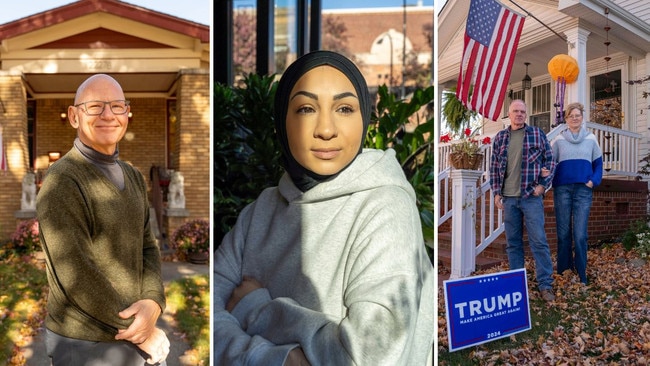
In the desperate closing hours of this deadlocked presidential contest, both Kamala Harris and Donald Trump are rushing to Michigan, where a bitter proxy battle over the war in Gaza threatens to up-end the US election.
With polls showing the Vice-President has a bare 0.6 percentage point lead in this critical swing state, Mr Harris offered a quiet prayer in a Detroit church early on Sunday morning (local time) before holding events and rallies across the state.
“In these next two days, we will be tested,” she warned parishioners at the Greater Emmanuel Church.
“These days will demand everything we’ve got, but when I think about the days ahead and the god we serve, we were born for such a time as this.”
Mr Trump, who visited Detroit on Saturday, has chosen to hold the final rally of his campaign in Michigan on election eve, in a nod to the importance of winning this key state.
The candidates are rushing here for a unique reason: they are grappling for the votes of the state’s large and angry Arab community that could have the power to decide who wins Michigan, and therefore potentially the US election.
In one of the most bizarre twists in this volatile campaign, Mr Trump is set to be the major beneficiary of the fallout over the war in Gaza as Michigan’s angry and traditionally pro-Democrat Arab-American population seeks to punish the Biden-Harris administration’s largely unequivocal support for Israel.
This is despite Mr Trump being arguably more pro-Israel than the Biden-Harris administration and despite him having once advocated a “Muslim ban”.
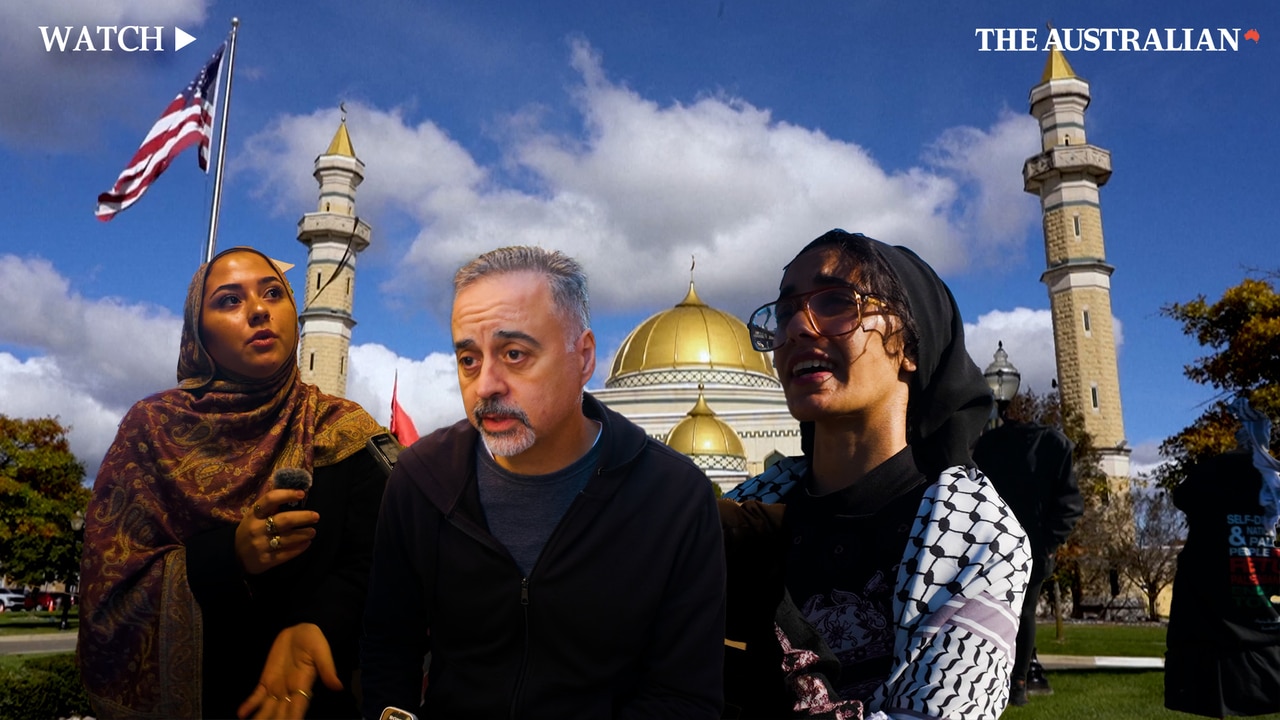
“The Biden-Harris administration absolutely abandoned us 100 per cent, they didn’t take two looks at us, they’re not even trying to posture nothing,” says Lebanese-American Kenwah Dabja as she buys a coffee in the heavily Arab district of Dearborn in western Detroit.
“Unfortunately, I voted for Biden in 2020 and I was actually a delegate for the Democratic Party in Michigan. But that’s why they (the Harris campaign) are working so hard in Michigan because they know they are going to lose us.”
Many in Michigan’s Arab community plan to protest either by switching their vote to Mr Trump or by voting for a third party – or not voting at all – each of which ultimately helps Mr Trump, given that the Arab American vote is traditionally 80 per cent pro-Democrat. Their anger has only increased during the election campaign as Israel launched a military offensive in Lebanon continued with the conflict in Gaza.
An Arab News-YouGov poll released last month found this traditionally pro-democratic vote has splintered, with 45 per cent of Arab American voters nationally now supporting Mr Trump with support for Ms Harris crumbling to just 43 per cent.
Nowhere is this Arab protest vote more important than Michigan, where Ms Harris narrowly leads Mr Trump in a state where almost 300,000 people claim ancestry from the Middle East or North Africa and where Joe Biden defeated Mr Trump in 2020 by only 150,000 votes.
“I wanted to vote for Kamala,” says Michigan University political science student Rawan El-Husseini, who voted for Mr Biden in 2020. “I wanted to vote for a woman, a woman of colour, to be our first woman president.
“But I’ve learned that this is a colonialist country and it doesn’t matter who is the figurehead, the face, they all do the same killing, they all perpetuate the same harm around the world.”
While Ms Harris has expressed greater concern for Palestinian deaths in Gaza than Mr Biden has, she has not deviated from the administration’s staunch support for Israel in its war against Hamas in Gaza. This is not enough for many Arab-Americans in Michigan, but Ms Harris also knows that any direct criticism of Israel would backfire on her politically in other parts of the country.
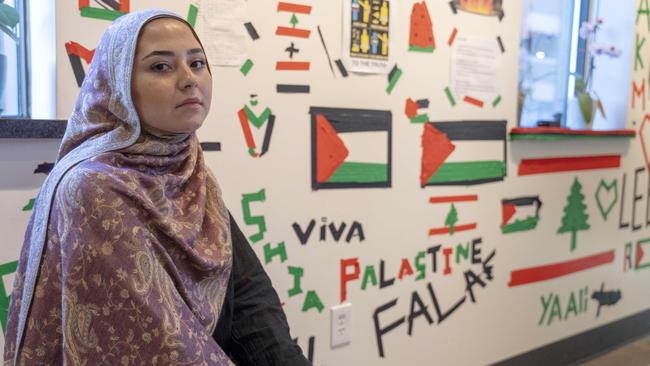
Mr Trump is working hard to win the vote of Michigan’s disaffected Arabs. At the weekend he went to Dearborn, the only Arab-majority city in the US, where he visited the Great Commoner, a halal cafe run by a Lebanese-American family and declared: “You’re going to have peace in the Middle East” when I’m president, “not with the clowns that you have running the US right now.”
Ms Harris also addressed the issue in Detroit on Sunday (Monday AEDT) saying: “On the subject of Gaza, I have been very clear the level of death of innocent Palestinians is unconscionable. We need to end the war, and we need to get the hostages out, and as president of the United States, I will do everything in my power to achieve that end and a two-state solution, where Palestinians will have the right to self-determination and security and stability in the region.”
A day after Mr Trump’s visit, inside that same cafe, a 30-year-old Lebanese-American mother of three, who identified herself only as Maha, told The Australian that she would vote for Mr Trump.
“Harris has a husband who is Israeli,” she said. “And she puts it out that all she is going to do is help Israelis overseas.
“We should stop sending money overseas to fund the genocide and instead help the American people who need it – fix our schools, our streets, put the money back into the people in America and not the people in Israel.”
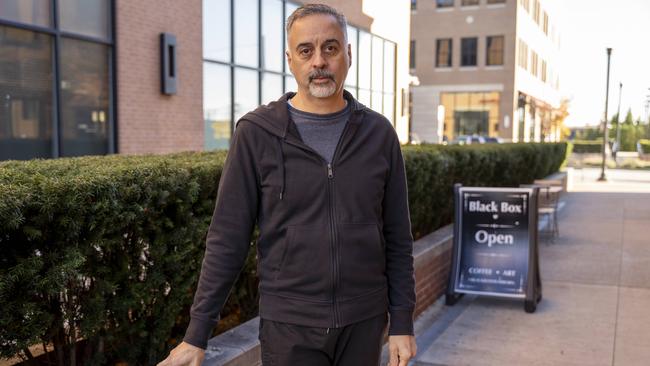
Ray Alcodray, a Lebanese-American who owns the Black Box coffee shop in Dearborn said he, like many Arab-Americans in Michigan, would vote for third party Greens candidate Jill Stein.
“Neither of the two candidates on the Republican or Democratic tickets show the type of leadership that I’m looking for in a president,” he said. “Neither of them have spoken plainly about the genocide that’s taking place in Palestine.”
Another Dearborn resident, Ayah Seirafi, a Muslim, said she would not vote for either Ms Harris or Mr Trump.
“We know a lot of people here in Dearborn who are very closely connected to a lot of the civilian deaths that have happened over there and in Lebanon,” she said as she stood in a park with a friend who was waving a Palestinian flag. “(But) I don’t trust Trump. Our community here has had very bad experiences with him, especially with the Muslim ban that he was a big advocate for during his time as president.”
But Glenn O’Kray, a Democrat volunteer in Dearborn feared the Arab protest vote would backfire and could deliver victory to Mr Trump.
“They are going to vote for a third party, that’s their way of protesting. But it’s cutting off your nose to spite your face, because if Mr Trump gets into office, he’s going to be hard on Muslims. Mr Trump calls Yemenis terrorists, and he had the Muslim ban, and he will deport anybody who is not a Green Card holder.”
But the battle for Michigan is not only dependent on the large Arab community; voters in this state say the economy, price rises, immigration and abortion are key factors in their vote.
Michigan was a reliably Democratic state in presidential contests from 1992 to 2012, but Mr Trump flipped the state in 2016, winning it by just 0.2 points before Mr Biden won it back narrowly in 2020 by just 2.8 points.
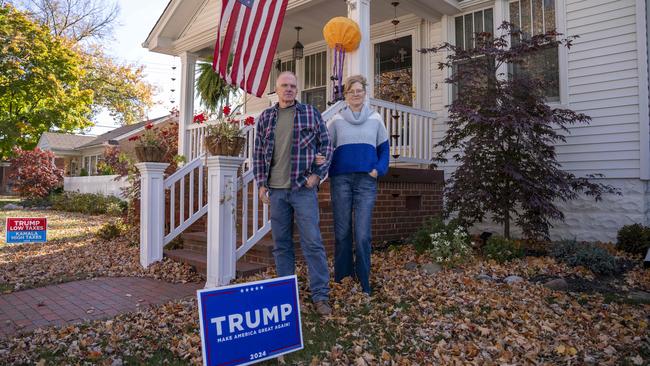
Terry Burke, 65, who owns a construction company in Detroit, said that if the election was “honest and true” then Mr Trump would win.
“I believe that he will be better for the country at large overall by securing the border, securing the nation against endless wars, he will be better for the economy and that they’ll open up refining of oil and energy again, hopefully making America energy independent,” he said.
His wife, Laura, said she feared America was becoming “too socialist”, and she would be voting for Mr Trump because on the abortion issue he was pro-life rather than pro-choice.
When asked about Mr Trump’s abrasive style, Mr Burke said: We’re sending a person into a ring that’s a fist fight. Politics is a fist fight. You don’t have to like them, they have to get the job done.”
Up the road, primary school teacher Rebeca Pietrzak, hugged her grandson Landon and said she would vote for Mr Trump because of the immigration issue.
“Last year when I taught there were five kids in the classroom who didn’t speak a word of English. One of them was 13 years old in a classroom with nine-year-olds,” she said. “Who does that hurt? It hurts the kids in the classroom, so I’d definitely like to see better border security.”
Hawley Harmon, an engineer who works in Detroit’s huge car industry, said he would vote for Ms Harris and couldn’t understand why she was not getting more credit for the healthy state of the US economy.
“I don’t know why, because the GDP, all the indicators in the US economy, are doing very well. Granted, the inflation prior or post-pandemic had set prices very high, but now the inflation is down. The high prices still remain in place, which is what people are complaining about, but that’s the only downside of the economy in general,” he said.
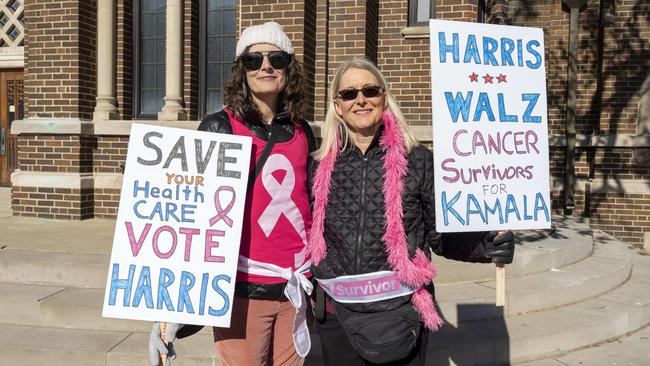
On a nearby street corner, Deborah De Porre and Renee Ridgeley, both breast cancer survivors, held up signs saying “cancer survivors for Kamala” as passing cars honked at them.
Ms Ridgeley said both were fearful that Mr Trump, if elected, would seek to repeal or gut the Affordable Care Act, also known as Obamacare.
“We’re here to let people know this is a big issue, even though people aren’t talking about it as much, it’s really big,” she said.
“The Affordable Care Act is there to take care of the people that need help the most and Trump absolutely tried to repeal it (last time).”
Another car-industry worker, truck designer Matt Langenderfer, sat on the front steps of his Detroit home and said how he would vote for Mr Trump, in part because inflation and the rise in price of consumer goods had forced his wife to work when previously she didn’t need to.
“I was the main bread-winner in our family and she didn’t have to work,” he said. “Now she has a job and we kind of need that, you know, because of the inflation in the last few years.
“I think he was the best president of my lifetime because he puts America first, he’s just a smart guy and he’s very good with the economy. He doesn’t get us into any wars. I just like him very much.”



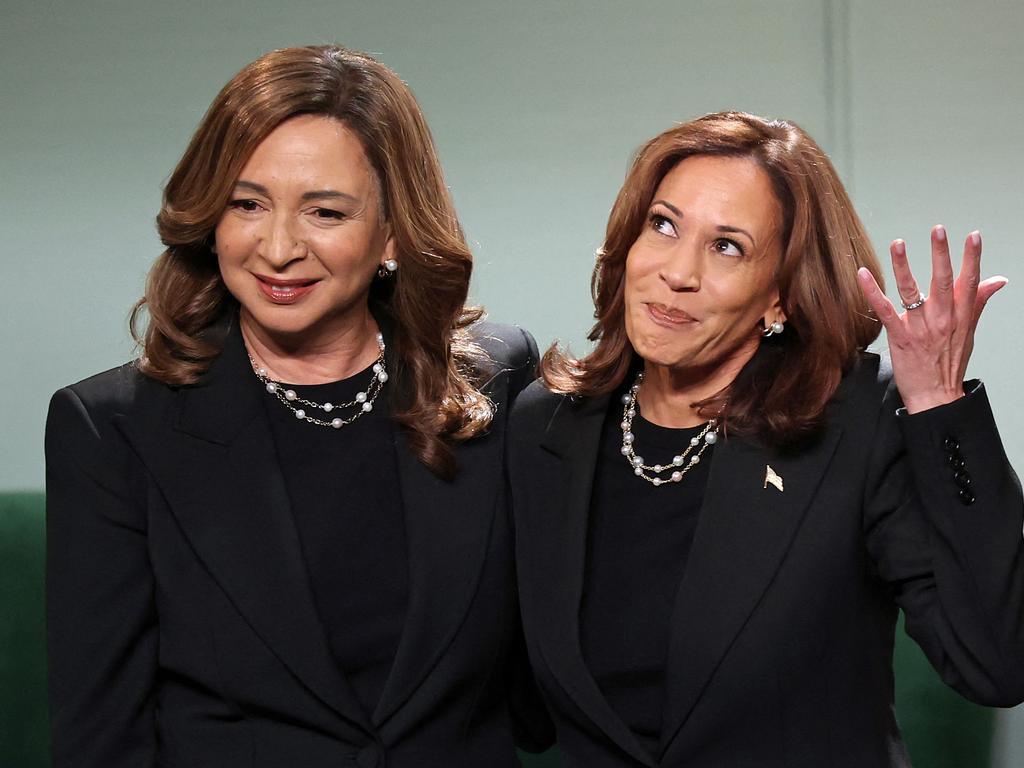
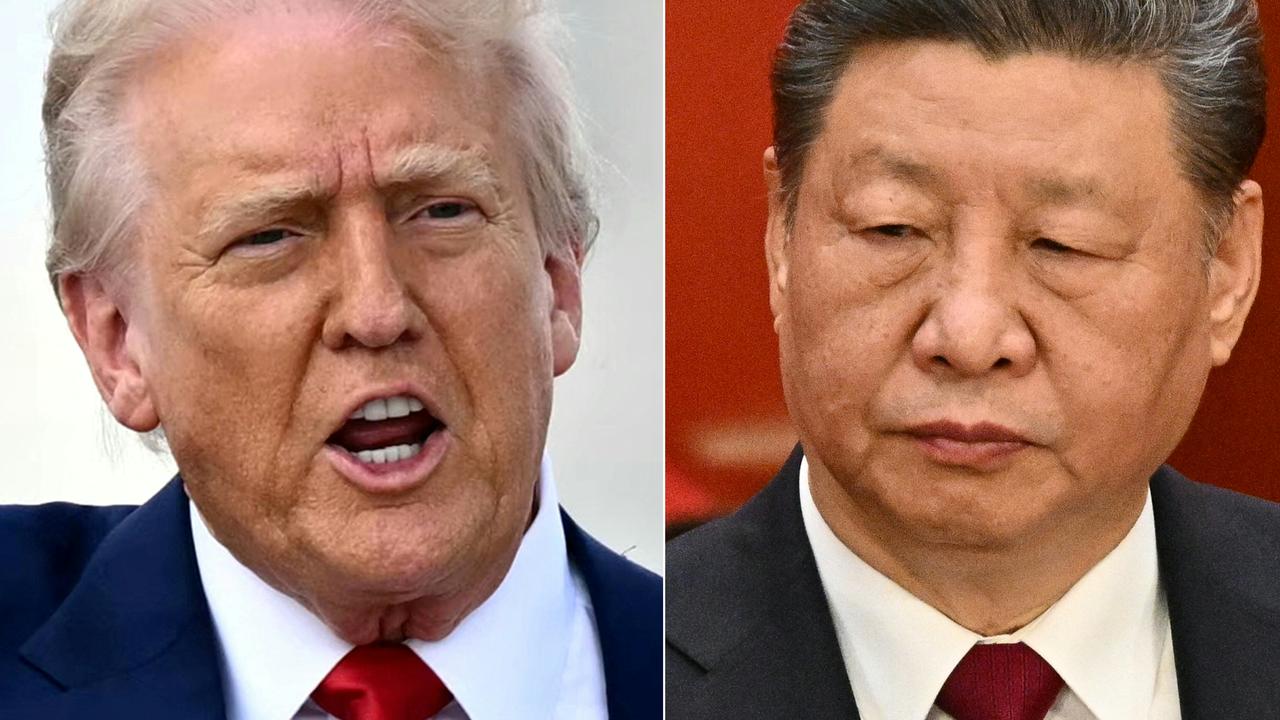
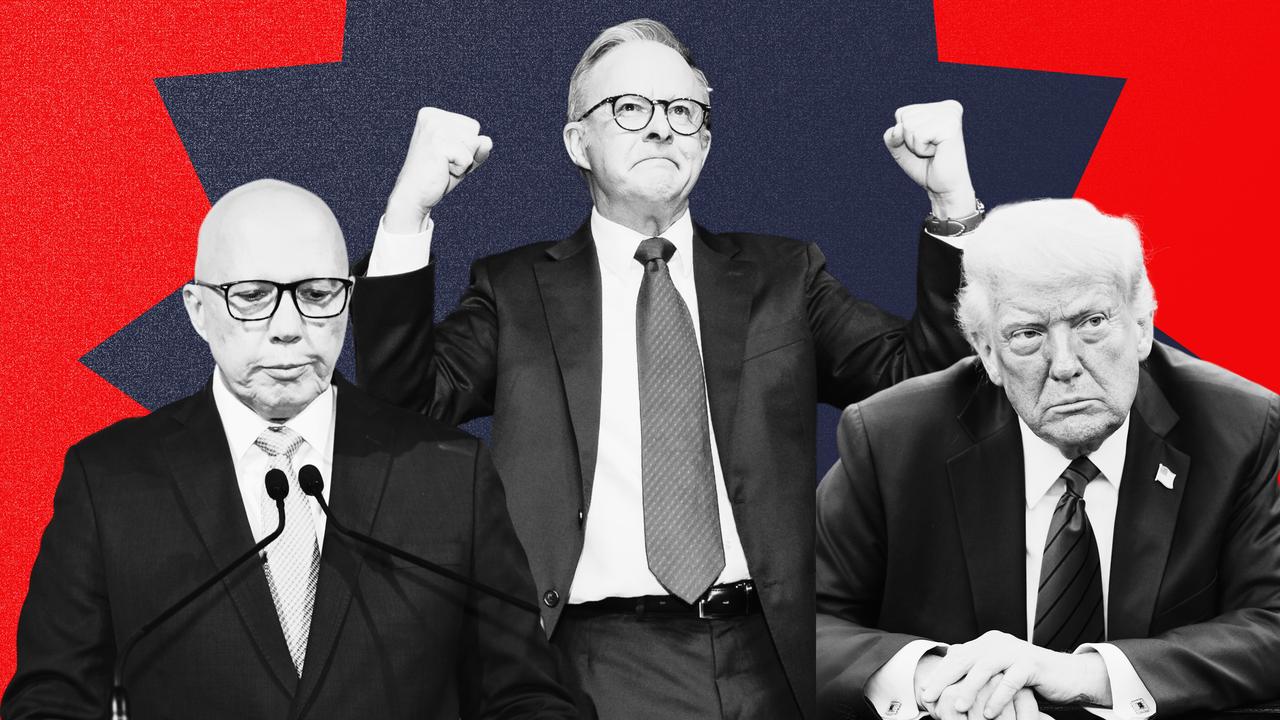
To join the conversation, please log in. Don't have an account? Register
Join the conversation, you are commenting as Logout